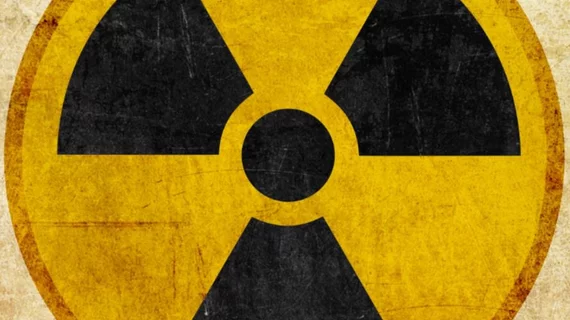Cancer risk from x-ray radiation more than doubled for obese patients
Obese patients who undergo x-ray imaging face more than double the risk of cancer from radiation than that of ‘normal-weight’ people, according to a new U.K.-based study published in the Journal of Radiological Protection.
"X-rays are an extremely important diagnostic tool, and radiographers do their utmost to minimize the risk to patients,” said Karen Knapp, with the University of Exeter, in the U.K., who oversaw the study, in a prepared statement. “However, our findings highlight the implications of increased radiation doses in severely obese patients.”
The study included 630 patients with an available history of radiation dose in x-rays performed between 2007 and 2015. These patients had a body mass index (BMI) of up to 50, which is considered severely obese, according to World Health Organization criteria. All patients had undergone weight-loss procedures such as gastric sleeves, gastric bands or gastric bypass at Musgrove Park Hospital, U.K.
After calculating patients’ dose area product (DAP), Knapp and colleagues found obese patients were exposed to higher radiation doses compared to normal-weight patients. While this is expected because of an increased volume of tissue, the cancer risk to obese patients was 153 percent more than those with a BMI under 30 kg m−2, according to the team.
The overall risk of cancer from x-ray is “very low,” the authors noted—up to 280 cancers in the U.K. “may have been related” to x-ray radiation dose in 2015-2016.
The results should not dissuade patients from undergoing x-ray imaging, but the group argued that guidelines should be formed to help minimize radiation doses in obese patients.
“Patients should not be put off having the x-rays they need to investigate disease as they are often crucial in getting the right treatment,” said co-author Richard Welbourn, of Musgrove Park Hospital, in the same statement. “With two thirds of the U.K. population overweight or obese, the results highlight how important it is for the NHS to implement strategies to treat this epidemic.”

